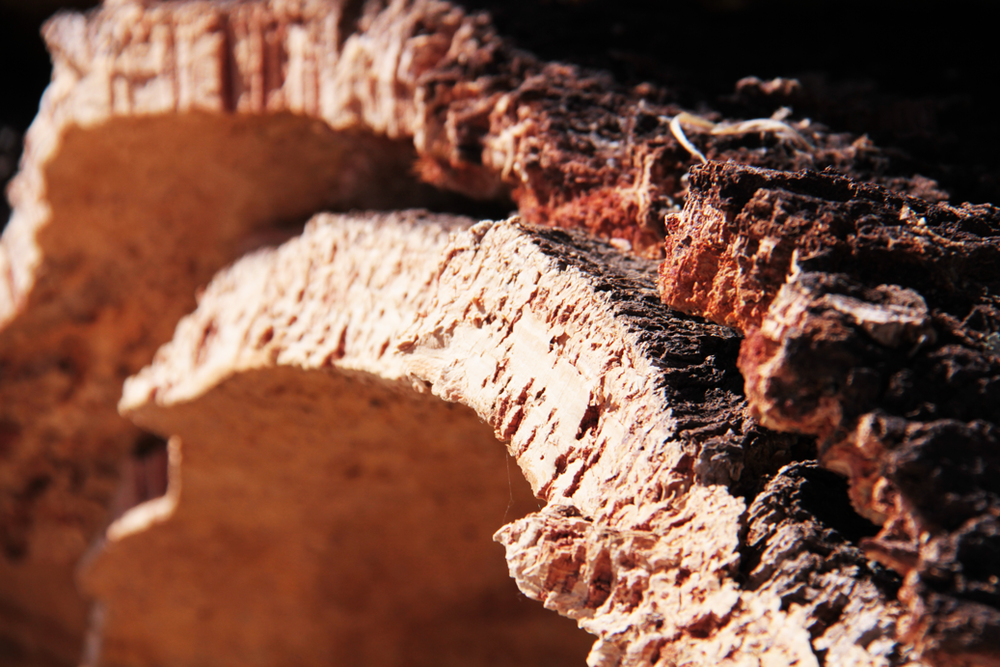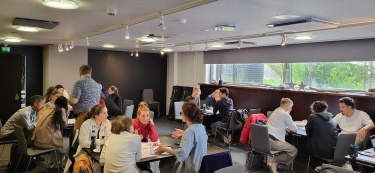“Wood first” takes a back seat in Sardinia
A scientific seminar at the Annual Conference of the European Forest Institute in Alghero (Sardinia, Italy) heard about the importance of generating forestry investments that can help to protect the forests so that they can continue to supply ecosystem services. The seminar, entitled ‘Roots to riches: Genetics & products of stone pine & Mediterranean oaks’ offered participants a unique opportunity to explore the genetics of these iconic Mediterranean tree species and the role of Mediterranean oaks in the forest-based bioeconomy.
The morning session focussed on the genetics, management and uses of stone pine (Pinus pinea) and cork oak (Quercus suber). It offered participants, some of them forestry practitioners, a comprehensive overview of the current trends and challenges these species face.
The vivid discussion highlighted the need for further research into the genetics of cork quality, soon to be advanced because the existing provenance trials are now entering an interesting age. Cork oak bark can be harvested every ten years, and the trial trees are now ready for their third round of debarking. This will allow researchers to compare the bark with the previous two samples and with bark from other trees. This will help to understand how different genomes perform under different environments. These genotype by environment interactions are important not only in the production of cork oak but more generally to see how different populations might respond to climate change.
Speakers also highlighted the low genetic variability of stone pine, pointing out that, despite this, the species is environmentally plastic, meaning that trees can respond appropriately to different environments even though the population as a whole is not very diverse. An economically vital area of research is to make use of genetic markers to combat commercial frauds. In Europe, for example, a packet of “pine nuts” does not indicate which species in the large family of pines supplied the nuts, which could have come from as far as Pakistan or China. Genetic markers would accurately identify the species.
The Incredible Project includes Interregional Innovation Networks (iNets) that will facilitate international coordination to address these issues for cork oak and stone pine.
The afternoon session examined the many new opportunities for material uses and green chemistry offered as part of the bioeconomy, in collaboration with European Hardwoods Innovation (EHIA) and the French Institute of Technology for Forest-based and Furniture Sectors (FCBA). One clear idea emerged from the session: the relevance of ecosystem services and the need to focus on high-value products and services. It will be crucial to be able to generate investments in forestry that will secure the supply of ecosystem services. Only this kind of approach will enable the sustainable management of Mediterranean broadleaves.
As Inazio Martinez de Arano (EFIMED) said: “Our forests have so many values but, paradoxically, we are unable to generate the resources needed to manage them. We need innovative business models to generate investment streams into Mediterranean forestry. Non-wood forest products and ecosystems services directly linked to societal wellbeing will be the key”.
The seminar ended with a conclusion that ecosystem services need to be secured and financed as a priority. The “wood first approach” that has dominated forestry for the past two centuries will not be enough going forward.
Antonio Brunori (PEFC, Italy) underlined that: "Non-wood forest products are going to be probably - at least in the Mediterranean region - the most profitable output,” he said. “The future market is payments for ecosystem services".
The event was organised jointly by the EFI Mediterranean Facility (EFIMED), the European Forest Genetic Resources Programme (EUFORGEN) and the EVOLTREE network.



